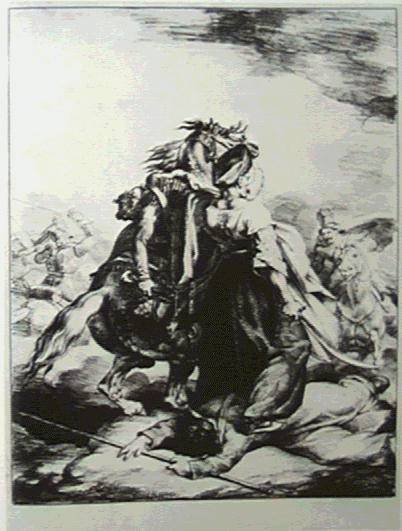
At other times, people need our support. Few things express our concern as well as standing up for someone, especially when no one else will do it.
Real
True Narratives
Book narratives:
- John Thompson, I Came As a Shadow: An Autobiography (Henry Holt & Company, 2020): “Thompson took over at Georgetown in 1972. The college had a poor team with a losing record. Thompson slowly turned it into a powerhouse. He did so by recruiting young Black players, some of whom had less than sterling academic credentials. He fought for these kids. He thought they deserved a chance.”
Technical and Analytical Readings
Photographs
Documentary and Educational Films
- The Interrupters, about young men who try to protect their community against the violence they once employed
Imaginary
Fictional Narratives
From the dark side:
- Aminatta Forna, The Memory of Love: A Novel (Atlantic Monthly Press, 2011), is “a luminous tale of passion and betrayal, encompassing the political unrest that racked Sierra Leone in the late 1960s and the ruinous civil war of the 1990s . . .”
Poetry
Music: Composers, artists, and major works
Gaetano Donizetti, La Fille du Régiment: (The Daughter of the Regiment) (1839) (approx. 130-135’) (libretto): The regiment has symbolically adopted a young woman of uncertain parentage. She faces the ancient conundrum of being unable to marry the man she loves because of social conventions. Just as she is about to sign a marriage contract to marry someone she does not love, the regiment comes to her rescue. Performances with video are conducted by Renzetti, and Tingaud. An audio recording features Sutherland & Pavarotti (Bonynge) in 1986.
Beyoncé Knowles is a popular singer commonly known by her first name. She is an ally of the LGBTQ community, a strong opponent of racism and sexism, and a global citizen. An Op-Ed in The New York Times opined: “. . . she wants us to know that even though she’s headlining a mainstream event like the Super Bowl, she has opinions and isn’t afraid to share them, nor is she afraid to do it on a national and global scale.” She is the main subject of this documentary, and books by Janice Arenofsky, Omise’eke Natasha Tinsley, Veronica Chambers, ed., Adriene Trier Bieniek, ed., and Michael A. Schuman. Here is a link to her releases, and to her playlists.
Mahalia Jackson was a Gospel singer in the United States, who was active during the Civil Rights era. Her grandparents had been enslaved. “While a child Jackson was exposed to the mélange of musical styles brimming throughout New Orleans. Though influenced by jazz and blues, she was drawn to gospel music and firmly established herself as a gospel singer.” “Her early style blended the freedom and power of gospel with the stricter style of the Baptist Church.” “Beginning in the 1940s, she was one of the first singers to take gospel out of the church, drawing white audiences and selling millions of records.” For her, Gospel represented a path to liberation, for herself and others. She was the main subject of this documentary film, and biographies by Mark Burford and Lorraine Goreau. Here she is in interview in 1958, and in 1971. Here is a link to her playlists.
Harry Belafonte was a Calypso singer from Jamaica. He was a humanitarian, a champion of social justice and racial justice, a civil rights activist, and was influential in the labor movement. He authored this memoir., gave many interviews, and was the main subject of this documentary, and others. Here is a link to his releases.
Albums:
- China Moses, “Nightintales” (2017) (47’): on this album, a young African-American woman sings of standing up for herself. Vocally, she is wrapped in pain, and in her own arms.
Music: songs and other short pieces
- Cynthia Eviro, “Stand Up” (lyrics), from the film “Harriet”
- Keb' Mo', "Stand Up (And Be Strong)" (lyrics)
- Stevie Wonder, "Heaven Help Us All" (lyrics)